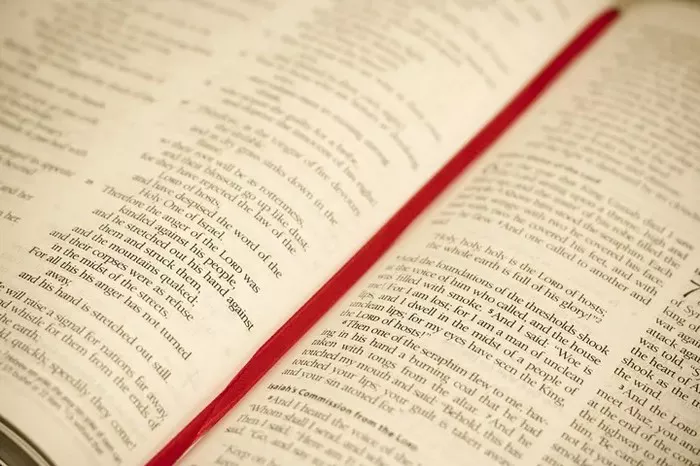The translation of the Bible, particularly the King James Version (KJV), stands as one of the most significant literary and religious achievements in history. Commissioned by King James I of England in the early 17th century, this translation has endured for centuries, shaping the English language and influencing countless lives around the world. But why did King James undertake such an ambitious project? What were his motivations behind translating the Bible? In this article, we delve into the historical context and explore the multifaceted reasons that prompted King James to initiate the translation of the Bible.
Religious Turmoil and Political Ambitions
King James ascended to the English throne in 1603 amid a period of religious unrest and division. England was grappling with religious conflicts, particularly between Catholics and Protestants. The preceding reign of Queen Elizabeth I, often referred to as the Elizabethan Religious Settlement, had sought to establish a compromise between these factions. However, tensions persisted, and religious dissent continued to simmer beneath the surface.
James, a staunch Protestant, aimed to consolidate his power and establish his authority as the supreme head of the Church of England. He perceived the translation of the Bible as a means to unify his realm under a common religious doctrine. By producing an authoritative English version of the Scriptures, he sought to quell theological disputes and promote religious harmony within his kingdom.
Cultural Renaissance and Linguistic Legacy
The early 17th century was a time of cultural renaissance and intellectual flourishing in England. The Renaissance had sparked a renewed interest in classical learning and literature, leading to a revival of the arts, sciences, and humanities. Against this backdrop of intellectual curiosity, King James recognized the importance of fostering education and scholarship.
The translation of the Bible was not only a religious endeavor but also a cultural and linguistic project. King James aimed to elevate the English language by producing a masterful translation of the Scriptures that would stand the test of time. The KJV, renowned for its majestic prose and lyrical beauty, remains a testament to the literary prowess of its translators. By commissioning the translation, King James sought to leave a lasting legacy that would shape English literature and language for generations to come.
Challenges of Existing Translations
Prior to the King James Version, several English translations of the Bible existed, including the Tyndale Bible and the Geneva Bible. However, these translations were not without their shortcomings. The Tyndale Bible, for instance, faced criticism from religious authorities for its perceived heresies and inaccuracies. The Geneva Bible, although popular among Protestant reformers, contained marginal notes that were deemed subversive by the English monarchy.
King James recognized the need for a new translation that would address the deficiencies of existing versions. He sought to create a translation that would be both faithful to the original texts and acceptable to a broad spectrum of religious denominations. By convening a team of scholars and theologians from diverse backgrounds, King James aimed to produce a translation that would garner widespread acceptance and support.
Political Diplomacy and International Relations
Beyond the borders of England, King James faced diplomatic challenges and geopolitical tensions. As the ruler of a kingdom embroiled in religious conflict, James sought to strengthen alliances with Protestant nations and bolster his standing on the international stage. The translation of the Bible served as a diplomatic tool, enhancing England’s reputation as a bastion of Protestantism and promoting unity among Protestant allies.
Moreover, the KJV played a crucial role in spreading Protestant theology and ideology beyond English shores. Its widespread dissemination facilitated missionary efforts and evangelization, particularly in the English colonies of North America. By promoting a common English Bible, King James aimed to forge closer ties with Protestant allies and advance the cause of religious reform on a global scale.
Legacy and Enduring Influence
The King James Version of the Bible was first published in 1611, and its impact has reverberated through the centuries. Despite the emergence of numerous modern translations, the KJV remains one of the most widely read and cherished versions of the Bible worldwide. Its legacy endures not only in churches and religious communities but also in literature, art, and music.
The translation of the Bible under King James’s patronage represents a pivotal moment in the history of Christianity and the English-speaking world. It reflects the convergence of religious, cultural, and political forces that shaped the early modern period. King James’s motives for commissioning the translation were multifaceted, encompassing religious, cultural, and geopolitical considerations.
Conclusion
In commissioning the translation of the Bible, King James I of England embarked on a monumental endeavor that would leave an indelible mark on history. His motivations for undertaking this ambitious project were varied and complex, reflecting the religious, cultural, and political dynamics of his era. From religious unity and cultural renaissance to diplomatic diplomacy and international relations, the translation of the Bible under King James’s patronage embodied a convergence of diverse forces that reshaped the English-speaking world. The enduring legacy of the King James Version stands as a testament to the vision and foresight of its royal patron, whose efforts continue to resonate with millions of believers and scholars worldwide.
FAQs:
Do Catholics use the King James Bible?
No, Catholics typically do not use the King James Bible. They primarily use the New American Bible, the Revised Standard Version Catholic Edition, or other translations approved by the Church.
Is the new King James Bible a good translation?
The New King James Version (NKJV) is considered by many to be a good translation. It maintains the beauty and literary quality of the original King James Version while updating some of its archaic language. However, opinions on translation quality can vary among individuals and scholars.


